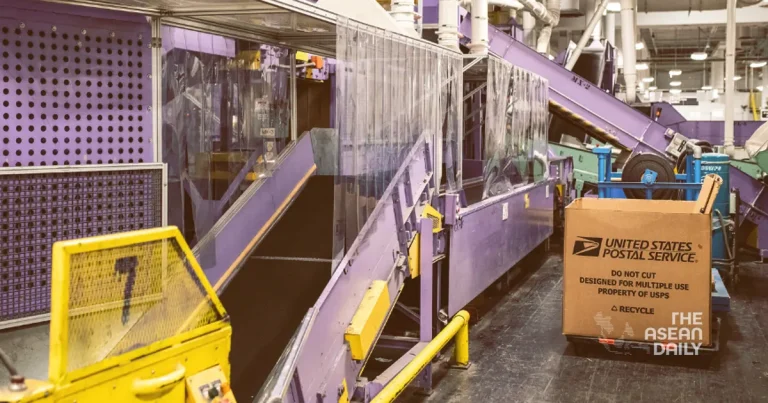6-2-2025 (WASHINGTON) A day of unprecedented turmoil in US-China postal relations ended in confusion as the United States Postal Service (USPS) reversed its brief suspension of parcels from China and Hong Kong, following former President Donald Trump’s executive order eliminating duty-free shipping privileges.
The dramatic U-turn came merely 12 hours after the initial suspension, highlighting the widespread uncertainty surrounding Trump’s new 10% tariff on Chinese imports and the termination of the “de minimis” rule that had previously allowed duty-free entry for packages valued under US$800.
Industry experts are grappling with the sudden policy shift, which has sent shockwaves through the international shipping community. “The sector is in complete disarray, attempting to predict the next developments,” explains Martin Palmer, Hurricane Commerce co-founder, a cross-border e-commerce data specialist.
The chaos has already triggered significant disruptions, with FedEx suspending its money-back guarantee on international deliveries. At New York’s JFK Airport, customs officials have reportedly halted all incoming Chinese shipments indefinitely, according to logistics industry sources.
The policy change particularly impacts major retailers like Temu and Shein, which have built their business models around the now-defunct duty exemption. These two companies alone reportedly accounted for nearly one-third of all duty-free packages entering the United States daily.
Maureen Cori, co-founder of Supply Chain Compliance in New York, criticised the hasty implementation: “The industry has been given no time to prepare. Clear governmental guidance is desperately needed.”
The USPS has confirmed it is collaborating with US Customs and Border Protection to establish an efficient tariff collection system, though specific details remain unclear. The postal service faces the monumental task of processing what was 1.36 billion shipments under the de minimis provision last year—a 36% increase from 2023.




